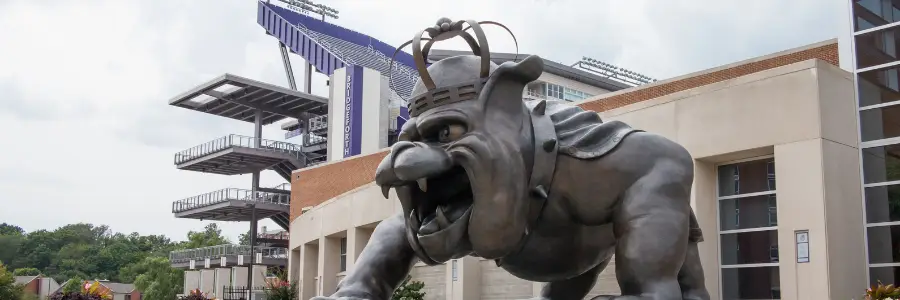Sports Betting Bans on Local College Teams: More Harm Than Good?

States that have legalized sports betting to date have taken one of two general approaches in addressing college sport wagering. In some states, the law treats college betting nearly the same as wagers on pro sports. As long as wagers are placed with licensed sportsbooks, regulators have no issue with college betting.
Even in these states, there are still some minor restrictions involving college betting. For example, Tennessee and Iowa both prohibit in-play proposition wagers on college games. For the most part, though, college betting has the green light in these states.
In other states, lawmakers have chosen to prohibit wagers on college games taking place within state lines and on games involving local college teams no matter where those games take place. New York, New Jersey, Illinois, Delaware and New Hampshire all prohibit wagers involving local college teams.
For those in favor of such restrictions, the purpose is to protect the integrity of college sports. With so many college athletes living on scholarships and not much else, the fear is that they will be tempted by gamblers offering big paydays to fix games or shave points.
So, rather than put student-athletes in a position where they could be approached to fix a game, the solution is not to allow locals to bet on their games. Easy, right? Or is it counterproductive?
Some would say attempting to do so would be akin to admitting that the integrity of college sports is already compromised. Others would say it is a preventive measure aimed at keeping corruption out of the local scene.
But then you could also say that a ban on local college sports protects the corruption already present in the illegal, underground betting market.
The NCAA Is Worried About an Impact, But Should It Be?
Back in January, NCAA president Mark Emmert talked about sports betting at the NCAA’s annual meeting and its potential impact:
“Sports wagering is going to have a dramatic impact on everything we do in college sports. It’s going to threaten the integrity of college sports in many ways unless we are willing to act boldly and strongly.”
The concern over integrity is a valid one, of course. But while Emmert implies that legal sports betting is going to be an issue, he ignores one basic fact. People are already betting hundreds of millions of dollars every year on college sports.
They just do so illegally via offshore betting sites and local bookies. How can something become an issue when it already exists?
The People Don’t Want It Legal
A poll taken back in March by the Associated Press-NORC Center for Public Affairs Research asked 1063 adults if they wanted betting on pro and college sports to be legal.
The results varied from state to state, but six of ten were in favor of legalizing it for professional sports while only four of ten favored doing the same for college sports.
But Is There Really A Need for A Ban?
Proponents of banning betting on local college teams say they want to protect the integrity of the sport. They don’t want college athletes to be tempted to do wrong. But just because betting is legal doesn’t mean athletes are going to try to cash in.
Many states already have laws prohibiting student-athletes from betting. The NCAA has banned anyone involved with a team that may have inside information on said team (players, coaches, trainers, secretaries, etc.) from betting on games as well.
The NCAA has even banned athletes from playing daily fantasy sports. So, since the NCAA has already taken steps, what more needs to be done?
Penn State President Eric J. Barron is worried about the student body in general and not just student-athletes. He had this to say to Pennsylvania Gaming Control Board in a letter back in June 2018:
“We are concerned that implementation is likely to have a negative effect on the integrity of college athletics and on the health, safety, and welfare of Pitt’s students. Students may be more inclined to participate in gambling activities, possibly to their detriment.”
Barron requested a temporary ban (two years) so that the impact of betting on college sports could be studied first. He was denied.
Bans are Counterproductive and Unnecessary
With the restrictions the NCAA already has in place, a ban doesn’t really impact student-athletes at all. It only affects local fans that may have been interested in putting some money on the home team.
But If they can’t legally bet on the home team, they are just going to continue betting on them illegally. So, a ban of any kind effectively keeps the illegal market from ever going away completely.
At least if the bets are placed legally, the amount bet on teams can be monitored for irregularities and significant winnings can be tracked as well. It becomes much easier to identify and monitor people suspected of wrongdoing.
Tania brings over 10 years of experience as a gambling industry reporter to BettingUSA.com, providing frequent news coverage and coverage of current events.




